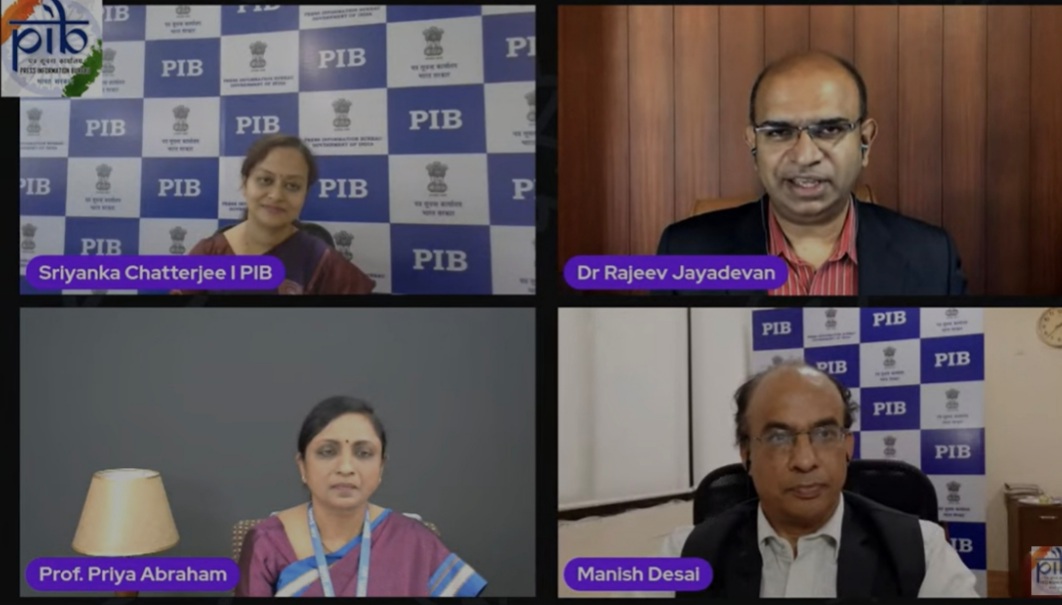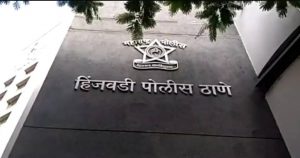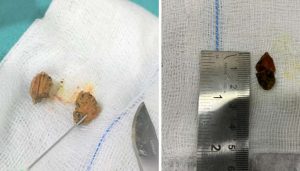Pune: NIV Director Says Omicron Variant Dodges Immune Response And Hence The Surge

Mumbai, 03rd February 2022: In the nation’s fight against the COVID-19 pandemic and infodemic, PIB (Western Region), Ministry of Information & Broadcasting organized a webinar on “Getting the Basics Right about the Third COVID-19 Surge” today. Director, Indian Council of Medical Research – National Institute of Virology, Pune, Prof. Priya Abraham and Doctor Rajeev Jayadevan answered the various questions and clarified doubts about the third COVID-19 surge being witnessed in the country.
Omicron Variant caused milder infection but that doesn’t mean we should let our guard down: Director, NIV Pune
Prof. Priya Abraham spoke about the highly transmissible nature of Omicron variant and how it evades immune response. “Omicron has a lot more mutations in its genome – more than 50 mutations, which reflects in 30 amino acid changes in its spike protein. Omicron Variant happens to evade immune response generated in a person who is previously infected or vaccinated. Its higher transmissibility explains the surge recently in our country.”
She pointed out that the current surge is dominated by Omicron Variant and two of its three sub-lineages circulating in our country. “The more the virus spreads, the more it will try to adapt and undergo genetic changes.” She went on to say that BA 2.0 genome of Omicron is very rampant in our country. One should strictly follow COVID Appropriate Behaviour to stop variants from further mutating, she cautioned.
Prof. Abraham also mentioned that the testing capacities in our country have considerably improved during the Pandemic. “Most RT-PCRs we do can trace Omicron Variant. The new innovation is to have an Omicron specific RT-PCR”.
She also informed that Indian SARS-CoV-2 Genomics Consortium is running surveillance on whole genome sequencing to trace if new variants are coming up.
“Cholera was not controlled through antibiotics; Man conquered cholera”
Gastroenterologist and past president, Indian Medical Association, Dr. Rajeev Jayadevan noted that omicron variant is causing significant increase in infection among younger people. He advised to take proper care since most people ignore symptoms considering it as common cold. “Younger People are tending to have flu-like illness. Flu is a severe illness where you are incapacitated for a few days, with severe pain in joints, muscles; you feel weak, dehydrated and unable to get up at times.”
The common symptoms of Omicron Variant include fever, sore throat, upper respiratory symptoms, body pain and also febrile seizures in a few children, he informed.
Speaking about higher chances of reinfection, Dr. Jayadevan said: “The biggest lesson Omicron has taught us is that ‘Make No Mistake, This Virus is going to Come at us Again’. Every one of us must realize this. Do not give the virus a chance to infect you. Omicron is not mild but less severe.”
He informed that vaccines are effective against severe disease but not effective against the spread of infection. He explained the importance for all of us to adopt public health measures. “You drink clean water to get rid of cholera. You get rid of mosquitoes to get rid of malaria. Similarly, we know COVID-19 spreads through air. So, to stop the virus from entering our nose and throat, we have to wear a mask.”
The doctor underlined that it is very essential to stay hydrated especially for those in home isolation, as viral infection causes dehydration where one’s muscle strength comes down which in turn may eventually lead to hospitalization. “Unless there is a specific indication, there is no need to take any antibiotic; very few people need an antibiotic.”
Dr. Jayadevan advised people with low immunity as well as those planning pregnancy to be more cautious. “Pregnancy carries a substantial risk of bad outcomes with COVID-19.”
Addressing the webinar, Director General, West Zone, Ministry of Information & Broadcasting, Manish Desai spoke about the various health initiatives taken by the Central Government in coordination with the State Governments, in order to fight the Pandemic. “The Centre has played the role of a catalyst; has shared the best COVID-19 practices adopted by one state with the other states to adopt and follow.” He observed that AIIMS Telemedicine YouTube channel has become a useful repository. “Initiatives like e-Sanjeevani OPD telemedicine portal that facilitates online consultation is commendable; nearly 2.5 Crore teleconsultations have taken place through this.”
The webinar was moderated by Media & Communication Officer, PIB Mumbai, Sriyanka Chatterjee.





